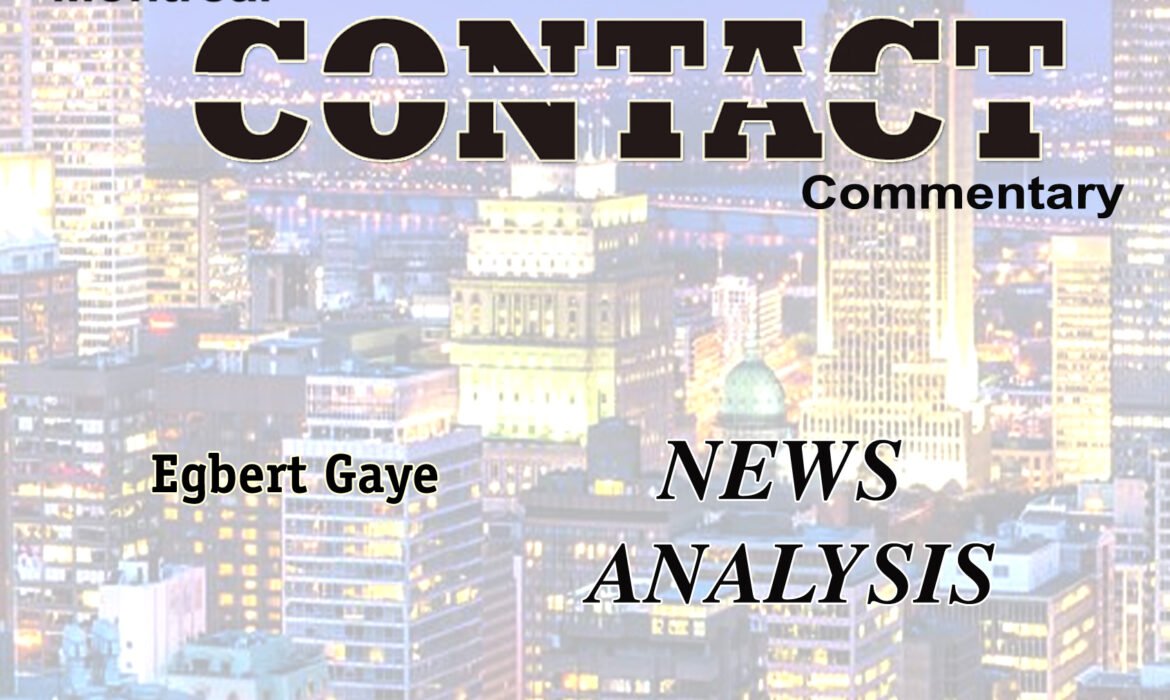In appealing the Superior Court ruling that banned police from making random roadside stops, the CAQ government did what was expected of it, both by proponents of the practice and those who are against it.
The ruling handed down on October 24, by Justice Michael Yergeau targeted section 636 of Quebec’s Highway Safety Code, which allows officers to conduct roadside stops without cause.
Both police and the provincial government say that the law as it stands allows the police to identify drunk drivers and individuals driving with without a valid license.
However, as almost every person in our community has come to know, police have been using the power to conduct random stops to target mostly Blacks and other minorities and in so doing have made racial profiling an every day reality in Quebec.
Justice Yergeau is in full accord with that reality, describing the law as “a safe conduit for racial profiling against the Black community.”
He rendered the ruling in a case brought by Joseph-Christopher Luamba, a 22-year-old Montrealer who said he had been stopped by police nearly a dozen times without reason, at least half of which when he was behind the wheel, none resulted in a ticket,
Justice Yergeau surmised that it allows the police to violate three sections of Canada’s Charter of Rights and Freedoms: the right to life, liberty and security of person; protection against arbitrary detention; and the guarantee of equality under the law.
And in so doing he gave the police six months to stop.
Of course, the department looked to the government, fully expecting them to appeal the ruling, while rights advocates would have been surprised if Premier Francois Legault and his team let the ruling stand fully given the fact that they would not even accept the ugly reality of systemic racism in Quebec and that racial profiling is part manifestation of it.
So, as expected there they were on Friday, November 25, Public Security Minister François Bonnardel standing side by side with Christopher Skeete, minister for the Fight Against Racism, announcing that the Quebec government stands by the police practice of random stops which they see as contributing to improve road safety. And they would be appealing Justice Yergeau’s ruling.
Although expected, the government’s move still confounds given the overwhelming evidence that confirms Justice Yergeau’s observation that: “Racial profiling does exist. It is not a laboratory-constructed abstraction … It is a reality that weighs heavily on Black communities. It manifests itself in particular with Black drivers of motor vehicles.”
And as if to justify the unjustifiable, both ministers offered a list of proposed government initiatives, which in their heart of hearts they know will do nothing to uproot the deeply ingrained faulty perception on the part of police that every Black person behind a steering wheel is suspect.
With straight faces they talk about additional training for police to “identify unconscious racial biases”, additional screening of applicants, new guidelines to get officers to act properly around Blacks and other minorities as well as strengthening the complaint process.
But, as difficult as this might be for the government to acknowledge… “been there, done that.”
Look, pretending that there’s no institutionalized racism in Quebec is one thing, but eventually society will pay a price for the systemic repression of minority groups.
The practice of racial profiling by police is endemic here.
Here’s how Justice Yergeau frames it.
“The preponderant evidence shows that over time, the arbitrary power granted to the police to carry out roadside stops without cause has become for some of them a vector, even a safe conduit for racial profiling against the Black community,” he wrote. “The rule of law thus becomes … a breach through which this sneaky form of racism rushes in.”
We have to listen to this man and let his judgement be a guiding light in Quebec’s path to social justice for all.
Egbert Gaye















